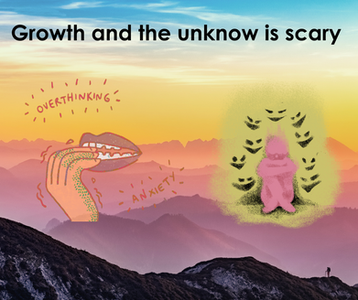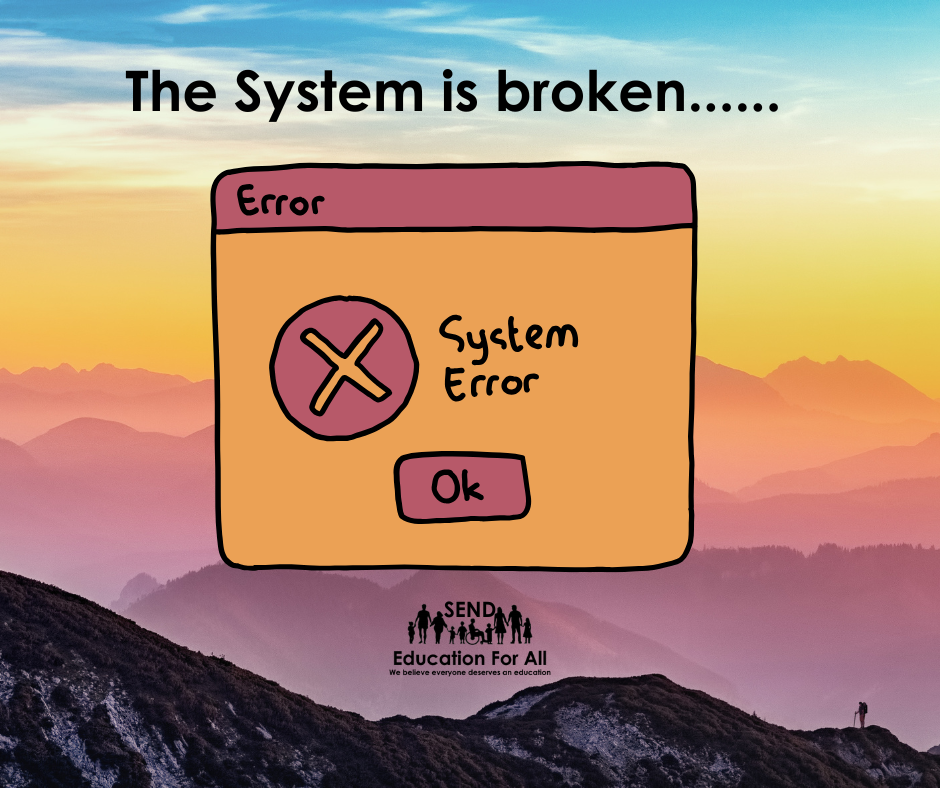Life with PDA with a side helping of ADHD quests.
- Lyndsay Critchlow

- Jul 30, 2025
- 7 min read
I am pretty much struggling recently with a massive avoidance that seems to permeate various aspects of my daily life. This feeling of being overwhelmed has led me to seek refuge in different distractions, and my very recent avoidance tactic has been to embrace my ADHD side quests. These side quests often manifest as spontaneous interests or projects that capture my attention, pulling me away from the tasks I know I should be focusing on. Instead of tackling my responsibilities, I find myself diving into activities that, while engaging and sometimes fulfilling, ultimately serve as a means to escape the anxiety and pressure of my obligations.
For instance, I might start organizing my bookshelf by colour or genre, an endeavour that feels productive at first but quickly reveals itself as a form of procrastination. Similarly, I might spend hours researching a new hobby, like painting or gardening, only to abandon it shortly after the initial excitement fades. This cycle of starting new projects can be exhilarating, as it provides a temporary high and a sense of accomplishment; however, it also leads to a growing pile of unfinished tasks and an ever-increasing sense of guilt for not completing what I set out to do.
Moreover, this tendency to indulge in side quests is not merely an escape; it also highlights the challenges I face with focus and time management, which are often exacerbated by my ADHD. The allure of these distractions can be strong, as they promise novelty and creativity, but they also contribute to a larger pattern of avoidance that I am trying to recognize and address. I am beginning to understand that while it’s important to honour my interests and passions, I also need to find a balance that allows me to confront my responsibilities without feeling overwhelmed.
## The Perception of Avoidance
I think it is crucial to share how my avoidance can appear to those looking in from the outside. To an observer, it may seem as though I am navigating life with ease, presenting an image of someone who is not struggling at all. This perception can be misleading and does not accurately reflect the internal battles I face on a daily basis.
From the outside, my engagement in various side quests or activities might give the impression that I am achieving a significant amount. To others, it may appear that I am productive and making progress in various aspects of my life. However, the reality is quite different. While I may be involved in these side activities, they often serve as distractions from my core responsibilities and obligations.
## The Illusion of Productivity
This illusion of productivity can be quite deceptive. People may view my participation in these side quests as a sign of ambition or success, not realizing that they are merely a way for me to avoid confronting the more pressing issues at hand. The tasks that I should be focusing on—those that are essential for my well-being and personal growth—are often left unattended. Daily tasks that many might consider routine or straightforward become overwhelming challenges that I find difficult to tackle.
For instance, simple activities such as maintaining a clean living space, managing finances, or even keeping up with personal relationships can fall by the wayside when I am caught up in the whirlwind of avoidance. Instead of addressing these important responsibilities, I might find myself engrossed in hobbies or projects that, while enjoyable, ultimately detract from my overall progress and well-being.
## The Consequences of Neglect
The neglect of these daily tasks can lead to a cycle of guilt and frustration. I may feel a sense of accomplishment in the moment while engaging in these side quests, but once the initial excitement fades, I am often left with the weight of unfinished responsibilities looming over me. This cycle perpetuates my avoidance, making it even harder to address the very tasks I am neglecting.
Furthermore, this pattern can create a disconnect between my perceived success and my actual emotional state. While others may applaud my efforts in these side activities, I often feel a profound sense of inadequacy and disappointment in myself for not meeting my obligations. This internal conflict can lead to increased anxiety and stress, compounding the very issues I am trying to escape through avoidance.
## The Importance of Acknowledgment
It is essential to acknowledge this dynamic, both for myself and for those who may be observing my behaviour. Understanding that my avoidance can be misconstrued as a lack of struggle is vital in fostering empathy and support from others. It is important to communicate openly about the challenges I face, as this can help bridge the gap between perception and reality.
By sharing my experiences, I hope to shed light on the complexities of avoidance and the impact it has on my life. This acknowledgment not only helps me confront my own issues but also encourages others to be more understanding and supportive of those who may be struggling in silence. Ultimately, recognizing the difference between outward appearances and internal struggles is a crucial step toward fostering a more compassionate and supportive environment for everyone.
One of my biggest and most significant ADHD side quests, which ultimately ended in failure due to my PDA, was my decision to embark on an Open University Law degree. The initial year of the course was an exhilarating experience, filled with enthusiasm and a sense of purpose. I was deeply engaged with the material, and my passion for the subject fuelled my motivation. I worked diligently and managed to achieve commendable results, passing both of my courses with flying colours. In fact, one of those courses was even awarded a distinction, which filled me with pride and a sense of accomplishment.
However, as I transitioned into the second year, the dynamics of my academic journey changed drastically. What had once been an exciting pursuit quickly morphed into an overwhelming demand that I found increasingly difficult to navigate. The workload intensified, and I felt as though I was being bombarded with expectations that were beyond my capacity to manage. My tutors, who were once sources of inspiration, became figures of anxiety. Their expectations felt insurmountable, and I struggled to keep up with the rigorous pace of the coursework.
As the months progressed, I found myself grappling with a mounting sense of dread whenever I thought about my assignments. The tasks that had once ignited my intellectual curiosity now felt like insurmountable obstacles. I began to experience significant difficulties in completing my assignments, and my grades reflected this struggle, as I started scoring much lower than I had previously. It became painfully clear that I was not able to maintain the same level of performance that I had achieved in my first year.
After just four months into the second year, I reached a breaking point. The stress and pressure of the situation became too much for me to handle, and I made the difficult decision to pull back from the program entirely. What had once been a thrilling academic adventure transformed into a source of overwhelming anxiety, and I began to avoid it as if it were the Plague. The excitement I had felt at the beginning was replaced by a sense of defeat and disillusionment.
Currently, I find myself in a state of uncertainty as I wait to see if I can leverage the credits and achievements I managed to accumulate during my time in the program. I am hopeful that I might be able to use my accomplishments to obtain a Higher Education in Law certificate. However, the reality is that I am acutely aware of my limitations, and I know that the level of avoidance I experienced indicates that I am unlikely to return to the program and continue my studies. It is a bittersweet realization, as I reflect on the potential that I had and the passion I once felt for the field of law, now overshadowed by the challenges that my PDA presents.
I have been running SEFA for a duration of 2 years and 5 months now, and during this time, I have developed a deep commitment to the mission of the organization. My ability to role play characters has been a significant asset, allowing me to immerse myself in various scenarios that enable me to connect with others on a profound level. This skill is not just a hobby; it is intertwined with my knowledge and expertise, which I leverage to assist as many individuals as I can. Helping others is not merely a task for me; it is my life goal, a calling that I strive to fulfil every single day, and I am dedicated to this purpose now and always.
However, I often find myself grappling with the notion that I might be holding back SEFA's growth potential. I have a plethora of amazing ideas that could significantly expand our outreach and help even more people in need. Yet, despite the excitement these ideas bring, I struggle to articulate how they would manifest in practice. This difficulty in expression often leads me to shy away from pursuing new opportunities, as I am apprehensive about the prospect of our organization becoming larger and more complex.
The fear of growth is daunting, and I worry about the responsibilities that come with it. Additionally, I have been very open about my ongoing battle with imposter syndrome. It is a constant presence in my life, making it challenging for me to view myself as a professional in this field. There are moments when I can recognize my skills and acknowledge that I am indeed good at what I do; during these moments of clarity and acceptance, I feel a sense of pride in my contributions. However, my anxiety often overshadows these positive feelings, keeping me in a state of perpetual defense. This anxiety manifests not only in my professional life but also in my daily routines, which can feel overwhelming. I use my roleplay as a mask, a protective layer that allows me to navigate the world while concealing the internal battles I face. This coping mechanism, while effective in some respects, makes it exceedingly difficult for others to perceive the daily struggles I endure. Even the simplest tasks—such as getting out of bed, eating, or staying hydrated—can become monumental challenges. My internalized nature complicates matters further; I tend to keep my struggles to myself, making it even harder for those around me to understand the depth of these battles. The combination of my roleplaying and my internalized struggles creates a complex web that often leaves me feeling isolated, even when I am surrounded by others. It is a journey that I navigate daily, filled with both obstacles and moments of triumph, and I remain committed to finding ways to overcome these challenges while continuing to support the mission of SEFA.






















Comments